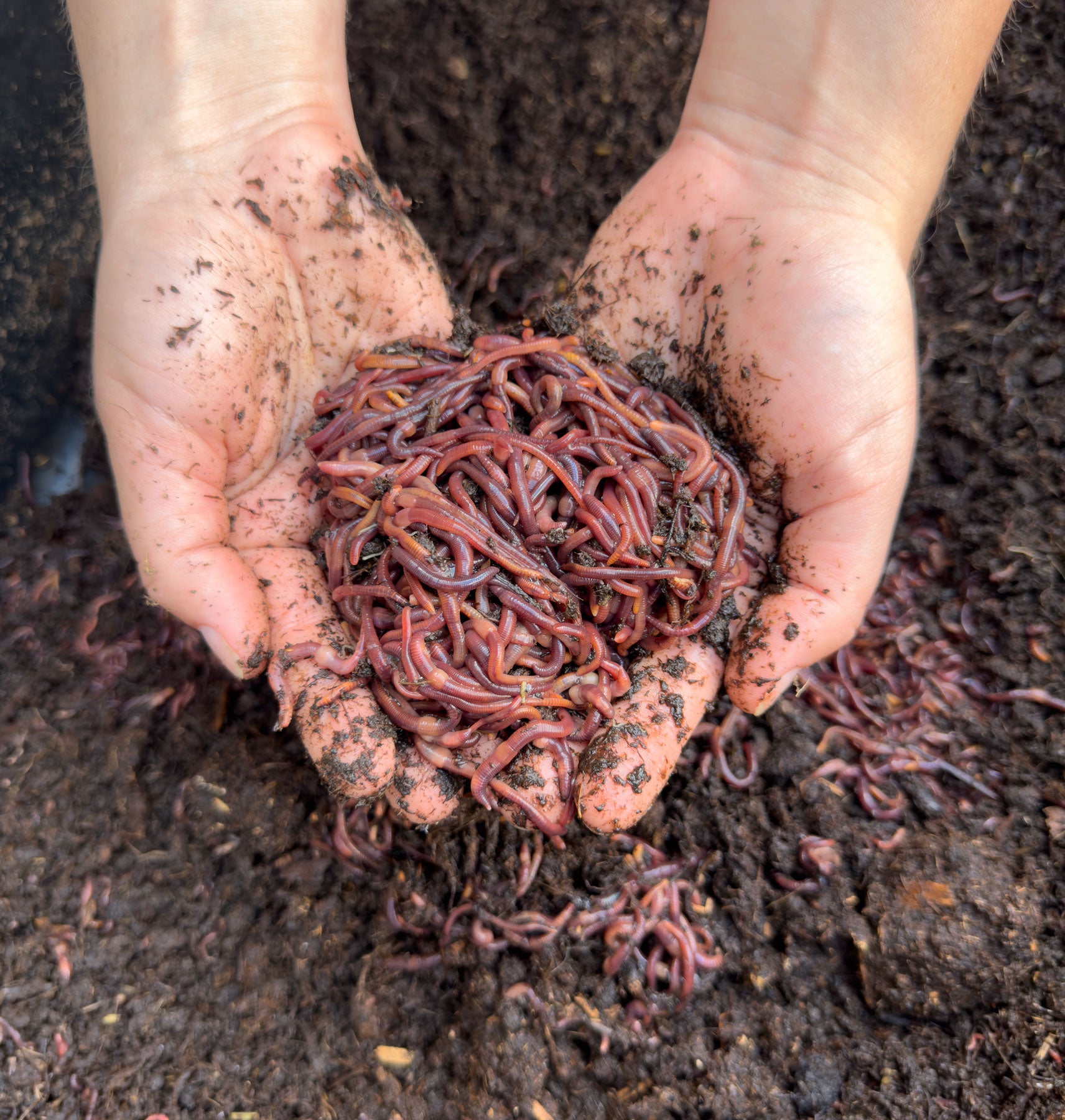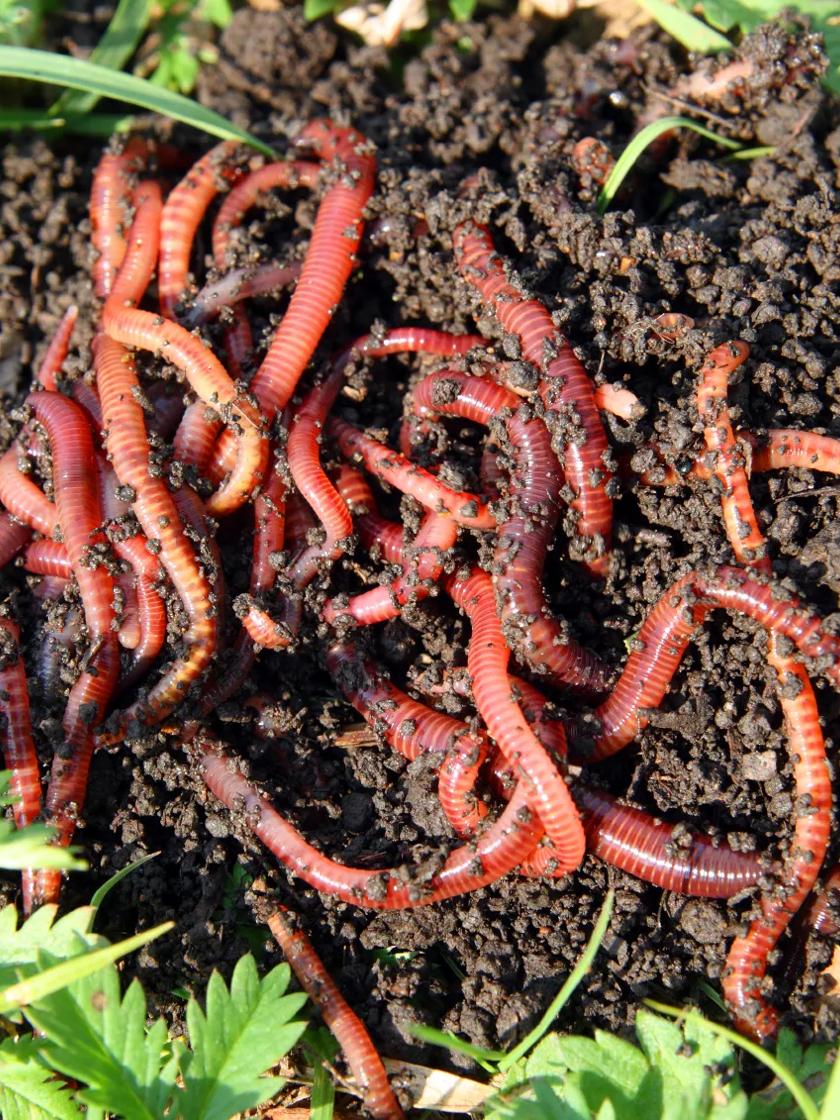Organic Composting with Red Wiggler Worms - Boost Your Yard's Development
Organic Composting with Red Wiggler Worms - Boost Your Yard's Development
Blog Article
Red Wiggler Worms Demystified: Opening the Tricks of Vermiculture for Greener Living and Nutrient-Rich Soil
In the realm of sustainable practices for improving dirt top quality and advertising eco-conscious living, red wiggler worms play a critical yet commonly forgotten duty. These modest animals have the exceptional capability to transform organic waste right into nutrient-rich castings that act as a potent all-natural fertilizer. By diving into the world of vermiculture, one can reveal a myriad of benefits that expand much beyond typical composting techniques. Understanding the intricacies of looking after these worms, enhancing their atmosphere, and harnessing their spreadings can lead to a greener way of living and much healthier dirt for plants to flourish.
The Duty of Red Wiggler Worms
Red Wiggler worms play a vital role in composting systems by successfully breaking down organic issue right into nutrient-rich castings. These starved eaters eat a variety of organic products, such as cooking area scraps, yard waste, and paper products. As they feed, the worms' digestion processes damage down the raw material into a fine, dark, and nutrient-dense material referred to as worm castings or vermicompost.
The spreadings produced by Red Wiggler worms are extremely beneficial for dirt health and plant development. They are rich in crucial nutrients like phosphorus, potassium, and nitrogen, which are important for sustaining healthy and balanced plant advancement. In addition, worm castings contain valuable microbes and enzymes that assist boost soil framework, increase water retention, and improve nutrient uptake by plants.
Advantages of Vermicomposting

Additionally, vermicompost, the nutrient-rich output of vermicomposting, works as an outstanding natural fertilizer and dirt conditioner. It enhances dirt structure, enhances soil oygenation, and increases soil moisture retention. These homes contribute to much healthier plants with more powerful root systems and far better resistance to bugs and illness. Vermicompost additionally enhances the soil with crucial nutrients like nitrogen, phosphorus, and potassium, advertising plant growth and total soil fertility.
In addition, vermicomposting assistances lasting horticulture methods by supplying a chemical-free and all-natural alternative to synthetic fertilizers. Red Wiggler Worms. This eco pleasant approach not only enriches the soil but also helps in reducing reliance on harmful chemicals, promoting a greener and much more lasting means of horticulture
Establishing a Worm Container
When developing a worm container for vermicomposting, proper setup is essential to guarantee the success of the composting process. The initial step in establishing a worm site web container is choosing an ideal container. This can be a plastic container or wooden box that supplies adequate space for the worms to move about and has correct drain holes to avoid waterlogging. Next, a bedding material such as shredded paper, cardboard, or coconut coir need to be included in the container. This bed linens offers a comfy environment for the worms and assists maintain moisture levels.
After including the bedding, introduce the red wiggler worms to the container. It is advised to begin with a handful of worms and gradually increase as they multiply. The worms need to after that be offered with food scraps such as vegetables and fruit peels, coffee grounds, and eggshells. It is important to prevent adding meat, milk, oily, or salted foods to avoid bring in bugs and developing unpleasant odors.
On a regular basis keep track of the view it now dampness levels and temperature level in the worm bin to make certain optimal problems for the worms. With appropriate arrangement and maintenance, the worm container will effectively transform organic waste right into nutrient-rich garden compost for your plants and garden.
Collecting Worm Castings
To efficiently gather nutrient-rich worm castings from your vermicomposting system, an organized harvesting method is essential. There are a couple of essential actions to follow to make sure an effective process when it comes time to collect the worm castings. First of all, quit adding fresh food scraps to one side of the worm container for a number of weeks before harvesting. This motivates the worms to move to the side with fresh bed linen and food, making it easier to scoop out the spreadings from the opposite.

Troubleshooting Common Issues
Recognizing and resolving usual difficulties that may arise during the vermicomposting procedure is crucial for maintaining a productive and healthy worm container. Including excess food scraps can lead to an accumulation of wetness and acidity in the worm container, possibly harming the worms. An additional concern is undesirable smells rising from the worm bin.
Furthermore, if the worm populace is decreasing or the worms appear unhealthy, it could be because of environmental stressors such as severe temperatures or pH levels. Monitoring these aspects and making necessary modifications is important for the wellness of the worms. By repairing these common problems without delay, vermicomposters can ensure a smooth and effective vermicomposting process while maintaining a prospering worm populace.

Conclusion
In verdict, red wiggler worms play a vital duty in vermiculture by damaging down natural issue explanation right into nutrient-rich dirt. Establishing up a worm bin is necessary for effective vermiculture, and gathering worm castings offers valuable garden compost for gardening.
As they feed, the worms' gastrointestinal procedures damage down the organic issue right into a fine, dark, and nutrient-dense material known as worm spreadings or vermicompost.
The spreadings created by Red Wiggler worms are extremely valuable for dirt health and wellness and plant growth. Including excess food scraps can lead to a build-up of wetness and acidity in the worm container, possibly hurting the worms.Additionally, if the worm population is declining or the worms show up harmful, it might be due to environmental stress factors such as severe temperatures or pH degrees. Setting up a worm bin is vital for successful vermiculture, and harvesting worm castings supplies useful garden compost for horticulture.
Report this page